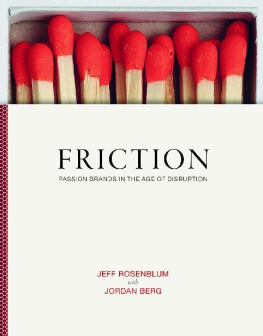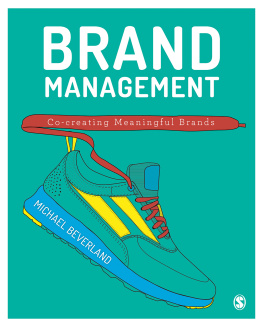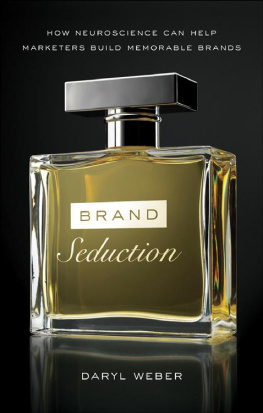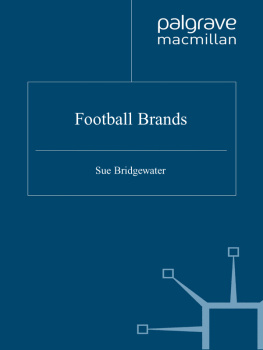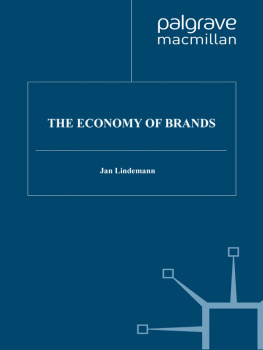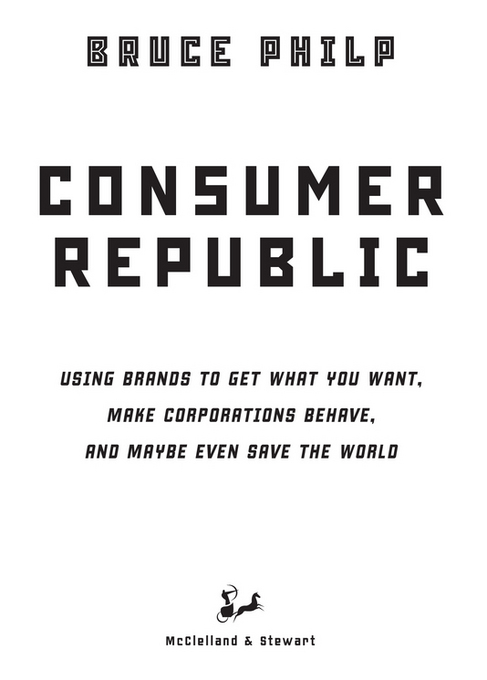
Copyright 2011 by Bruce Philp
All rights reserved. The use of any part of this publication reproduced, transmitted in any form or by any means, electronic, mechanical, photocopying, recording, or otherwise, or stored in a retrieval system, without the prior written consent of the publisher or, in case of photocopying or other reprographic copying, a licence from the Canadian Copyright Licensing Agency is an infringement of the copyright law.
L IBRARY AND A RCHIVES C ANADA C ATALOGUING IN P UBLICATION
Philp, Bruce, 1958
Consumer republic: using brands to get what you want, make corporations behave, and maybe even save the world / Bruce Philp.
eISBN: 978-0-7710-7006-8
1. Consumer behavior. 2. Brand choice. 3. Brand name
products Marketing. 4. Social responsibility of business.
5. Sustainable living. I. Title.
HF5415.32.P55 2011 658.8343 C2010-904137-2
We acknowledge the financial support of the Government of Canada through the Book Publishing Industry Development Program and that of the Government of Ontario through the Ontario Media Development Corporations Ontario Book Initiative. We further acknowledge the support of the Canada Council for the Arts and the Ontario Arts Council for our publishing program.
While the author has made every effort to provide accurate Internet addresses at the time of publication, neither the publisher nor the author assumes any responsibility for errors, or for changes that occur after publication. Further, the publisher does not have any control over and does not assume any responsibility for author or third-party websites or their content.
McClelland & Stewart Ltd.
75 Sherbourne Street
Toronto, Ontario
M5A 2P9
www.mcclelland.com
v3.1
For Linda Ann, who always knows what matters.
LET US CULTIVATE DUR CARDEN.
VOLTAIRE
CONTENTS
INTRODUCTION
After the Orgy of Consumption
PART ONE
THE CORPORATION 15 A COW:
A Brief Cultural History of Brands, Starring You
PART TWO
THE NEW BLACK:
Mindful Consumerism and the End of Status
PART THREE
PITCHFORKS AND TORCHES:
Why the Revolution Will Not Be Televised
EPILOGUE
In Which Capitalism Acquires a Conscience, and Everything Works Perfectly
PREFACE
F or the last three decades or so, marketing has been my career, much of it spent in advertising and branding as a strategist. My job has been to figure out how to get marketers what they want from you, by getting you what you want from them. Wherever theres common ground between you and those marketers, theres business to be done, and my preoccupation has been to find it.
Through all the years Ive spent inside the machine of marketing, a couple of uncomfortable truths about this work have stuck with me, truths that have suddenly taken on more importance as we stare down the barrel of an uncertain future for consumerism and the way we live.
The first is how adversarial the relationship often is between the people who buy things and the organizations they buy them from. Its just odd. In a free market, you would think that creating value and then delivering it to satisfied customers would be a pretty pleasant process. Yet, when you spend time listening to people talk about marketing and corporations, especially in generalities, youre more likely to hear suspicion and hostility in their voices than you will delight. Youd almost think they were talking about governments, given the strong feelings, a strange combination of resentment and high expectations, they seem to hold about corporations. Meanwhile, in the boardrooms of the nation, while youll rarely encounter corporate types who are actually hostile to their customers, youll certainly see plenty of wariness. Their world is about what they can get away with in a products features, its quality, its price, and where and how its sold and it breeds an approach to consumers as circumspect as what youd take around a strangers Rottweiler.
The second truth is that the buying public misperceives its power over corporations. We seem to believe we dont have any. Without a doubt, there are situations where we dont have much there are industries where there isnt enough choice for consumers to have any power, industries where the product being sold is such a commodity that competitors behave more like cartels, and industries that dont do business with ordinary people at all. But mostly, we consumers are, in fact, extremely powerful. The compact that weve collectively had with the corporate world practically since the Industrial Revolution has been a bit like the one that kept the planet from turning into an ashtray during the Cold War: mutual assured destruction. We know, but dont care to admit, that if one of us starves, we both starve. Its a stalemate. Consumers and corporations dont always love or trust each other, but neither of us can afford to walk away from the game.
These are realities Id accepted without question for a long time, just as you probably have. Now, though, as the world struggles to put its latest and one of its meanest ever economic firestorms behind it and casts about for someone to blame, Ive begun to wonder if maybe weve been looking at this all wrong.
At the end of the 1980s, there was a surge of environmentalism in Western societies, not unlike what were experiencing today. Corporations talked seriously about green marketing and actually made some tangible moves toward operating this way. Consumers opted in, paying attention to things like unnecessary packaging and engaging in practices like recycling in their homes. Politicians felt compelled to engage in the conversation or else risk being seen as irrelevant by their constituencies. Rather than being a counterculture phenomenon the way it was in the 60s and 70s, being green became part of popular culture, something ordinary people thought about and talked about and something marketers thought they could exploit to make themselves more attractive to us. Environmentalism became, in the very kindest sense of the word, commercial. There was less heated rhetoric, and there was more real change.
What made this green movement different? Part of the answer is a document called Our Common Future. It began as the report of the Brundtland Commission, which had been struck by the United Nations in 1983 to face the problem of the accelerating deterioration of the human environment and natural resources and the consequences of that deterioration for economic and social development. Presented to the General Assembly in 1987, it was built on a fascinating and pragmatic two-word concept: sustainable development. The formal definition of sustainable development was development that meets the needs of the present without compromising the ability of future generations to meet their own needs. The genius of this can fly right past you if you dont read it carefully: You see, its a dtente. It doesnt say that the only way to save the world is to stop developing it. Instead, its premised on the idea that development is inevitable, and that the way forward is to figure out how to do it so that we dont mortgage our future in the process. Before this, environmentalism was a political all-or-nothing standoff. After this, environmentalism started to become a matter of collective interest and focused on what we all had in common rather than on our conflicting agendas. Suddenly, nobody wanted to be left out. Environmentalism became an inclusive social force rather than a divisive political one, and that seemed to unlock things.




